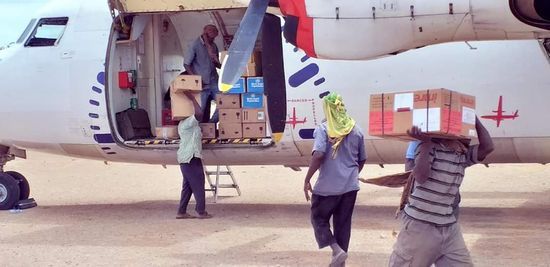
This is an e-learning course that aims to introduce the Food Insecurity and Health Readiness and Response Strategic Framework. A framework that was elaborated by a dedicated Working Group led by different departments in HQs, in collaboration with EMRO and AFRO.
The aim of this document is to better frame the role of WHO and of the health sector in context prone to food crises and to provide guidance and support for the strengthening and adaptation of health and nutrition actions in response to increased malnutrition and health risks due to food insecurity.
Photo credits: WHO
Idioma: English
Health topic
Información del curso
Overview: Food Insecurity, Hunger and Malnutrition continue to increase globally due to the toxic combination of drivers such as conflicts, economic shocks and the effects of climate change. Food Crises are also health emergencies: food shortages and associated factors bring about increased nutrition and health risks for the population affected and an increased need for preventive and curative health care. While Malnutrition increases health risks, especially among children, PLWs, people living with chronic diseases and disabilities, the elders, food Insecurity also contributes to deterioration in health seeking behaviour and increasing access barriers to health care with consequent negative impact on service coverage. Especially in a context where health systems are already under-resourced and disrupted.
As the role of WHO and of the health sector in food insecurity and food crises has been often underestimated and neglected, a WHO strategic framework for readiness and preparedness was elaborated by a dedicated multi departmental working group, in collaboration with EMRO and AFRO to support the strengthening of WHO national capacities for a more prompt, effective and resilient health system response to food insecurity and famine.
The course provides an introduction to basic concept of food insecurity, a review of the impact and implications of food crises in health, health systems and programming and to the structure and content of the Strategic Framework to support its use and operationalization in the framework of Country specific planning.
This introduction module of the Food Insecurity and Health Strategic Readiness and Response Framework was developed in 2020 when we first released the framework for pilot testing. While the essence of this module remains fully relevant, since its release there have been the following developments:
- IPC has grown and is now working in over 50 countries, WHO has joined the IPC partnership and is actively involved.
- After a period of testing and seeking feedback from country and regional offices we are now in the process of reviewing and aligning the framework with the latest WHO strategies. As such, and in line with the HEPR policy (Strengthening health, emergency prevention, preparedness and response and resilience) we have grouped previous domains 4 and 5 (Availability of essential nutrition actions and Essential health service actions) into one domain on ‘Safe and scalable care’ with a subdomain for each of the former topics.
- Once the review is finalized we plan to seek approval for publication of the revised version of the framework on the WHO website. As soon as this process is finalized we will make it available on this page.
- The latest information is available in the following documents
- Food insecurity: the yearly global report on food crises (https://www.wfp.org/publications/global-report-food-crises-grfc-2024
- Early warnings on acute food insecurity: the Yearly Hunger hotspots report https://www.wfp.org/publications/hunger-hotspots-fao-wfp-early-warnings-acute-food-insecurity-november-2023-april-2024).
- Recent IPC analysis: https://www.ipcinfo.org/ipc-country-analysis/en/
- Early warning regarding food insecurity: FEWS NET website https://fews.net/
Course duration: Approximately 30 mins.
Certificates: No certificate available at this time.
Lo que aprenderá
- Explain the basic concept of Food Insecurity and its classification as the for IPC/CH System
- Describe the main implications of food insecurity and food crises on health, health systems and programming
- Define the Food Insecurity and Health Strategic Framework for readiness and preparedness, its structure, content, with its strategic domains and objectives